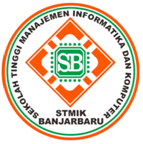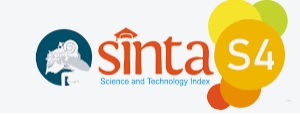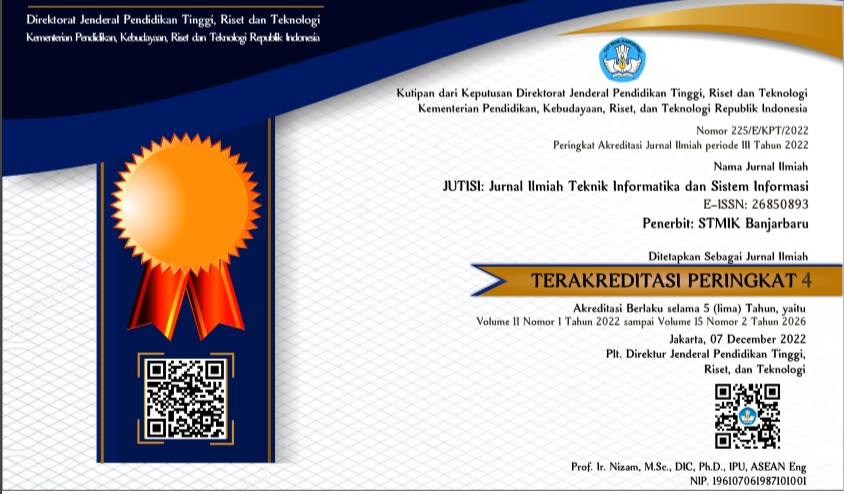Analisis Sentimen Opini Masyarakat Terhadap Presiden Jokowi Sebelum Dan Sesudah Pilpres 2024 Menggunakan Metode Naive Bayes Classification
Abstract
The 2024 presidential election in Indonesia is an important moment in political dynamics. This research analyzes changes in public sentiment towards President Jokowi before and after the 2024 Presidential Election using the naive bayes classification method. Datasets consist of 10,014 tweets that have gone through the process of crawling, preprocessing, translating, labeling, classification, and model evaluation. The analysis results show that before the 2024 presidential election, positive sentiment reached 41.17%, neutral sentiment 34.30%, and negative sentiment 24.53%. After the 2024 presidential election, positive sentiment decreased to 39.08%, neutral sentiment increased to 37.59%, and negative sentiment decreased to 23.33%. Prediction accuracy increased to 64 and neutral sentiment had a precision of 88, with a dataset focusing on President Jokowi after the 2024 Presidential Election, while recall for positive sentiment was 87, and f1-score for neutral sentiment was 69, with a dataset of President Jokowi before the 2024 Presidential Election.
Keywords: Presiden Jokowi; Public opinion dynamics; Naive Bayes Classification; Presidential Election 2024; Sentiment
Â
Abstrak
Pemilihan Presiden 2024 di Indonesia merupakan momen penting dalam dinamika politik. Penelitian ini menganalisis perubahan sentimen publik terhadap Presiden Jokowi sebelum dan sesudah Pilpres 2024 dengan menggunakan metode klasifikasi naive bayes. Datasets terdiri dari 10.014 tweets yang telah melalui proses crawling, preprocessing, translating, labeling, classification, dan evaluation model. Hasil analisis menunjukkan bahwa sebelum Pilpres 2024, sentimen positif mencapai 41,17%, sentimen netral 34,30%, dan sentimen negatif 24,53%. Setelah Pilpres 2024, sentimen positif menurun menjadi 39,08%, sentimen netral meningkat menjadi 37,59%, dan sentimen negatif menurun menjadi 23,33%. Akurasi prediksi meningkat menjadi 64 dan Sentimen netral memiliki precision 88, dengan dataset yang berfokus pada Presiden Jokowi setelah pelaksanaan Pilpres 2024, sementara recall untuk sentimen positif adalah 87, dan f1-score untuk sentimen netral adalah 69, dengan dataset Presiden Jokowi sebelum Pilpres 2024.
Keywords
References
M. Devit and N. Ridwan, “Dampak Framing Hasil Survey Pemilihan Presiden 2024 Mempengaruhi Persepsi Publik,†J. Kaji. Ilm., vol. 23, no. 3, pp. 233–242, 2023, [Online]. Available: file:///C:/Users/admin/AppData/Local/Microsoft/Windows/INetCache/ IE/UIIP2X37/3.+Muhammad+Devit_UPJ_JKI_Sep23[1].pdf
T. Krisdiyanto, “Analisis Sentimen Opini Masyarakat Indonesia Terhadap Kebijakan PPKM pada Media Sosial Twitter Menggunakan Naïve Bayes Clasifiers,†J. CoreIT J. Has. Penelit. Ilmu Komput. dan Teknol. Inf., vol. 7, no. 1, pp. 32–37, 2021, doi: 10.24014/coreit.v7i1.12945.
Y. S. Mahardika and E. Zuliarso, “Analisis Sentimen Terhadap Pemerintahan Joko Widodo Pada Media Sosial Twitter Menggunakan Algoritma Naives Bayes Classifier,†Pros. SINTAK 2018, no. 2015, pp. 409–413, 2018.
D. Putri, Dianati, G. F. Susilo, and W. Eko, “Analisis Sentimen Kinerja Dewan Perwakilan Rakyat (DPR) Pada Twitter Menggunakan Metode Naive Bayes Classifier,†J. Inform. dan Tek. Elektro Terap., vol. 10, no. 1, pp. 34–40, 2022, doi: 10.23960/jitet.v10i1.2262.
Azhar, S. U. Masruroh, and L. K. Wardhani, “Performance comparison of the Naive Bayes algorithm and the k-NN lexicon approach on Twitter media sentiment analysis,†vol. 3, no. 2, pp. 33–38, 2023, doi: 10.59190/stc.v3i2.229.
Y. Findawati, U. Indahyanti, Y. Rahmawati, and R. Puspitasari, “Sentiment Analysis of Potential Presidential Candidates 2024: A Twitter-Based Study,†Acad. Open, vol. 8, no. 1, pp. 1–17, 2023, doi: 10.21070/acopen.8.2023.7138.
A. Halim, Y. Yusra, M. Fikry, M. Irsyad, and ..., “Klasifikasi Sentimen Masyarakat Di Twitter Terhadap Prabowo Subianto Sebagai Bakal Calon Presiden 2024 Menggunakan M-KNN,†J. Inf. …, vol. 5, no. 1, pp. 202–212, 2023, doi: 10.30865/json.v5i2.7071.
W. Frencis, “Analisis Sentimen Masyarakat Terhadap Isu Penundaan Pemilu 2024 Pada Twitter Dengan Metode Naive Bayes Dan Support Vector Machine,†J. Sains dan Teknol., vol. 5, no. 3, pp. 890–899, 2023, [Online]. Available: http://ejournal.sisfokomtek.org/ index.php/saintek/article/view/1359
R. N. Mauliza and Y. R. Sipayung, “Penerapan Text Mining Dalam Menganalisis Pendapat Masyarakat Terhadap Pemilu 2024 Pada Media Sosial X Menggunakan Metode Naive Bayes,†vol. 9, no. 1, pp. 1–16, 2024.
K. A. Lubis, T. A. Bangsa, A. Yudertha, “Analisis Sentimen Opini Masyarakat Terhadap Pindahnya Ibu Kota Indonesia Dengan Menggunakan Klasifikasi Naïve Bayes,†J. Teknoinfo, vol. 18, no. 1, pp. 226–238, 2024.
B. Imran, M. N. Karim, and N. I. Ningsih, “Klasifikasi Berita Hoax Terkait Pemilihan Umum Presiden Republik Indonesia Tahun 2024 Menggunakan Naïve Bayes Dan Svm Classification of Hoax News Related To the General Election of the President of the Republic of Indonesia in 2024 Using Naïve Bayes and S,†Jurnal Ilmiah Dinamika Rekayasa, vol. 20, no. 1, pp. 1-9 [Online]. Available: http://jurnal.dinarek.unsoed.ac.id
M. A. Rosid, A. S. Fitrani, I. R. I. Astutik, N. I. Mulloh, and H. A. Gozali, “Improving Text Preprocessing for Student Complaint Document Classification Using Sastrawi,†IOP Conf. Ser. Mater. Sci. Eng., vol. 874, no. 1, p. 012017, 2020, doi: 10.1088/1757-899X/ 874/1/012017.
S. I. Nurhafida and F.Sembiring, “Analisis Text Clustering Masyarakat di Twiter mengenai Mcdonald’Sxbts menggunakan Orange Data Mining,†SISMATIK (Seminar Nas. Sist. Inf. dan Manaj. Inform., pp. 28–35, 2021.
L. A. Andika, P. A. N. Azizah, and R. Respatiwulan, “Analisis Sentimen Masyarakat terhadap Hasil Quick Count Pemilihan Presiden Indonesia 2019 pada Media Sosial Twitter Menggunakan Metode Naive Bayes Classifier,†Indones. J. Appl. Stat., vol. 2, no. 1, pp. 34–41, 2019, doi: 10.13057/ijas.v2i1.29998.
K. Jindal and R. Aron, “WITHDRAWN: A systematic study of sentiment analysis for social media data,†Mater. Today Proc., pp. 1–11, 2021, doi: 10.1016/j.matpr.2021.01.048.
S. S. Berutu, “Text Mining dan Klasifikasi Sentimen Berbasis Naïve Bayes Pada Opini Masyarakat terhadap Makanan Tradisional,†J. Sist. Komput. dan Inform., vol. 4, no. 2, pp. 254–262, 2022, doi: 10.30865/json.v4i2.5138.
H. Mustofa and A. A. Mahfudh, “Klasifikasi Berita Hoax Dengan Menggunakan Metode Naive Bayes,†Walisongo J. Inf. Technol., vol. 1, no. 1, pp. 1–12, 2019, doi: 10.21580/wjit.2019.1.1.3915.
How To Cite This :
Refbacks
- There are currently no refbacks.











